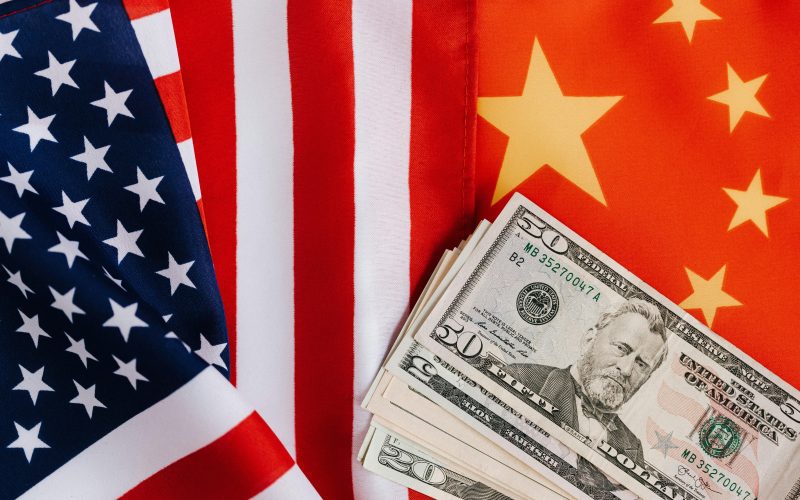Introduction
The value of the US Dollar (USD) plays a critical role in shaping global investments. Whether you’re an individual investor, a company with international dealings, or a government trying to manage economic stability, understanding how the US Dollar’s fluctuations impact the global economy is crucial. This article will explore how the strength or weakness of the US Dollar influences investment decisions worldwide and examine the broader effects on different markets and asset classes.
The US Dollar as the World’s Reserve Currency
The US dollar is the dominant reserve currency globally. Central banks and financial institutions across the world hold USD in their foreign exchange reserves, making it an essential asset in international trade and investment. This status allows the USD to play a key role in global investment flows, trade relations, and commodity pricing.
Because the US dollar is involved in nearly 80% of all global transactions, any fluctuation in its value can significantly affect other currencies and financial markets. For example, when the USD strengthens against other currencies, it can make foreign investments more expensive for American investors. Conversely, a weaker US dollar can boost international investments as they become more affordable for US-based investors.
The Impact of a Strong US Dollar
A strong US Dollar means that the currency has gained value relative to other currencies, such as the Euro, British Pound, or Japanese Yen. This can have a series of effects on global investments.
- Foreign Investments in the US: A strong Dollar makes US assets, such as stocks and real estate, more expensive for foreign investors. As a result, foreign demand for these assets may decline, potentially leading to a decrease in the prices of US-based investments.
- Emerging Market Investments: In emerging markets, many businesses and governments borrow in USD to finance projects. When the value of the Dollar rises, the cost of servicing these loans increases, putting pressure on these markets. As a result, investors may be less inclined to invest in such regions due to the heightened financial risk.
- Commodity Pricing: The value of the US Dollar is directly related to the pricing of commodities like oil, gold, and other raw materials. Since these commodities are priced in USD, a stronger Dollar generally causes commodity prices to fall, which can affect commodity-based investments, particularly in countries that rely on exports of these goods.
- Global Trade: A strong Dollar makes US exports more expensive for foreign buyers. As a result, US businesses that rely on international markets may experience a decline in demand, leading to a reduction in stock prices and overall economic growth. This, in turn, can impact global investment patterns.
The Impact of a Weak US Dollar

Conversely, when the US dollar weakens, it means the value of the dollar has declined relative to other global currencies. A weak dollar can have several significant effects on global investments:
- Foreign Investments in the US: A weaker US Dollar can make US assets more affordable for foreign investors, driving up demand for American stocks, real estate, and bonds. This can stimulate the US economy by encouraging investment inflows.
- Emerging Market Investments: Emerging markets benefit from a weaker Dollar since their borrowing costs decrease when repaid in USD. This can make investment in these regions more attractive to investors, leading to increased capital inflows and the development of high-growth industries.
- Commodity Pricing: A weaker Dollar tends to drive up commodity prices, as these are typically priced in USD. Rising commodity prices can create opportunities for investors in the energy, metals, and agricultural sectors.
- Global Trade: A weaker Dollar makes US goods and services cheaper for foreign buyers. This boosts exports, which can positively affect US companies’ profits, increase stock prices, and enhance the investment climate.
Exchange Rates and Currency Risk
One of the key challenges that investors face when dealing with global investments is currency risk. The fluctuations in exchange rates between the US dollar and other currencies can significantly impact the value of international investments.
For example, if a US-based investor buys stocks in a company based in Europe and the value of the Euro declines against the dollar, the value of that investment could fall, even if the European company’s stock price increases in local currency terms.
Currency risk is often managed through hedging strategies, such as currency futures, options, or exchange-traded funds (ETFs), that can help mitigate the impact of unfavorable exchange rate movements on investment returns.
How the US Dollar Affects Different Asset Classes
1. Stocks and Equities
- Strong USD: Typically leads to reduced earnings for US companies with large international exposure as their products become more expensive abroad. Foreign companies may find US stocks less attractive due to increased investment costs.
- Weak USD: Increases US companies’ earnings from abroad as their products become cheaper in foreign markets. Foreign investors may also find US stocks more affordable.
2. Bonds
- Strong USD: Foreign demand for US government bonds may decrease, as returns are less attractive compared to bonds issued in other currencies.
- Weak USD: A weaker Dollar could attract more foreign investors to US bonds, as returns become more favorable when converted into their local currency.
3. Real Estate
- Strong USD: Can reduce foreign investment in US real estate as properties become more expensive in foreign currencies.
- Weak USD: Makes US real estate more affordable for foreign buyers, potentially increasing investment in both residential and commercial properties.
Comparative Table: US Dollar’s Impact on Global Investments
| Effect | Strong US Dollar | Weak US Dollar |
|---|---|---|
| Foreign Investment in US | Decreases due to higher asset prices | Increases due to lower asset prices |
| Emerging Market Investment | Declines as debt servicing costs rise | Increases as debt servicing costs fall |
| Commodity Prices | Typically falls, affecting commodity-based investments | Typically rises, offering opportunities for commodity investments |
| US Exports | Declines due to higher pricing for foreign buyers | Increases as US products become cheaper |
| Global Trade | May slow down as US goods become expensive | May boost trade as US goods become affordable |
Analysis Table: Key Factors Affected by US Dollar Fluctuations
| Factor | Strong US Dollar | Weak US Dollar |
|---|---|---|
| Investor Sentiment | Caution in international markets due to higher costs | Optimism, as assets become cheaper for foreign investors |
| Inflation | Lower inflation in the US due to cheaper imports | Higher inflation as import prices rise |
| Interest Rates | Central banks may raise rates to defend the USD | Central banks may lower rates to stimulate economic growth |
| Global Markets | Pressure on emerging markets and commodities | Growth in emerging markets and commodity sectors |
Conclusion
The value of the US dollar is an essential factor influencing global investment strategies. A strong USD can create challenges for international investments, while a weaker USD often presents more opportunities. Investors must stay informed about fluctuations in the USD’s value and be proactive in managing their portfolios to minimize risks and capitalize on favorable conditions.
Understanding how the US dollar interacts with other currencies and asset classes helps investors make informed decisions. Whether in stocks, bonds, commodities, or real estate, the strength or weakness of the USD plays a vital role in shaping global investment flows and the financial landscape.











